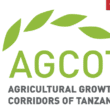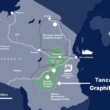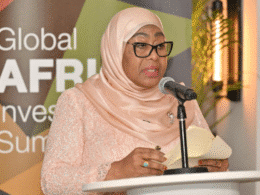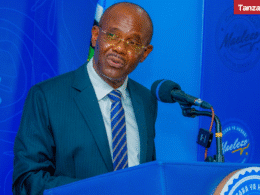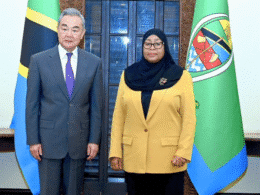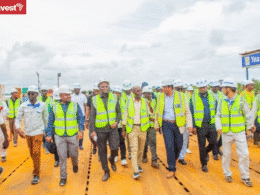Overview of the Tanzania Airports Infrastructure
TANZANIAINVEST has been interviewing Mr. Prosper Tesha, Director General of the Tanzania Airports Authority (TAA), to learn about the airport infrastructure in Tanzania and about the role of this institution within the Tanzania investment framework.
| Prosper Tesha, Director General of the Tanzania Airports Authority |
TI: Could you briefly us about the Tanzania Airports Authority (TAA) and its level of independence from the Government?
Prosper Tesha – Tanzania Airports Authority: TAA is a semi-autonomous agency of the government.
We were formed by an Act of government which came from the country’s efforts, that started in the 80s, to reform the government.
At that time, the government decided that its core business should be [to focus on] the laws and policies making process and [also] on the maintenance of order, which left the services to be done either by the private sector or other parties, such as autonomous or semi-autonomous agencies.
Such agencies would be departments of the government that would provide services in a business manner and, accordingly, they were given autonomy or authority to reallocate the resources with minimum interference from the government.
The government would remain with eyes open, but hands off, so that such agencies could conduct business with minimum interference, although still providing services on its behalf.
TAA is still working on gaining further autonomy.
We have already prepared the relative legislation, which was scheduled to be passed now, but the pre-lectoral activities have momentarily suspended the process.
It is a new TAA Act which will enable us to conduct business and provide services with a greater degree of autonomy and deal more efficiently and flexibly with the private sector.
I strongly believe the law will be passed by the upcoming government as it has already gone through several stages with the current government, which has been very quick in reviewing laws and making decisions.
TI: What will be the impact of this new Act?
PT: The impact will be tremendous because giving us further autonomy will heavily increase the flexibility of TAA.
We will, hence, be more efficient and more commercially oriented by increasing our decision making power, which is fundamental when working with the private sector.
We will be able to enter into agreements without too much reference from other organisations, within the law of course.
TI: Why is such legislation only just being put in place now?
PT: The reforms have been going on in phases in Tanzania.
When you talk of TAA we were a purely governmental department up to the end of 1999, when we were formed as an authority.
Before then, being a purely governmental body, the mindset, the working attitude, the way we conducted business was terrible.
Moving from that to a completely business-minded entity is too much of a change to been done in one go.
This first stage of being an executive semi-autonomous agency that we have gone through has helped a lot.
It helped because we have gone through a lot of changes, such as transforming the mindsets of the staff and the working attitude.
Even [getting] the government itself to recognise us an entity [and] to provide services on its behalf on a business oriented manner has been really difficult.
Moving now, as we plan [to do], from the semi-autonomous status to the next higher level of autonomy becomes quite easy.
We are only five years old, but we have been able to introduce many changes in the Authority.
Changes have been progressive, not sudden, to avoid being disruptive, where people are provided with services that suddenly have to be paid for.
TI: To what extent have the Tanzania airport services been outsourced to private companies?
PT: All airport developments such as construction, maintenance, putting in facilities and equipment used to be done, to a large extent and even up to now, by the government.
It is quite normal for these things to be provided by the government, not only in Tanzania.
We have reached a stage now where we have realized and decided that the private sector can have lot of input, together with the government and the agencies or authorities like us, to develop and run the airports. {xtypo_quote_left}We have reached a stage now where we have realized and decided that the private sector can have lot of input […] to develop and run the airports.{/xtypo_quote_left}
This is not something that could have easily been conceptualised then or [even] five years ago, the idea that work and services could be outsourced to private companies that would construct terminal buildings or provide services.
We have now reached a point were we have outsourced several of the airports services in this country.
The way we are looking at the involvement of the private sector at the moment is that almost everything can be done by it.
The best arrangements I believe are PPPs (Public Private Partnerships).
The is the way we see our way forward because, in such partnerships, there is a part to be done by us and part by the private sector.
For every single project, we conduct a specific analysis on what we believe should be done by us and what [should be done] by the private partner.
I would not think there is any part that should necessarily be done solely by the government or by the public sector [because] it all depends on how it is moulded.
If we talk of airports security, for instance, years back it was inconceivable to leave such a sensitive area to private hands, but it is not an impossible thing anymore.
There are a lot of places where we have involved private security companies, while in some others we considered the standards of the private companies not adequate and we would be better off doing the job ourselves.
Still, we keep on involving the private sector as much as possible and we do not see any particular areas where the work cannot be done by private companies.
Tanzania Airport Infrastructure Outlook and Investment Opportunities
TI: What is the importance of air transport in the uplifting and development of an emerging country like Tanzania?
PT: The development of our industry is a prime requisite for the country to support the economic growth.
Any country has to depend on inter-modal means of transport since they are dependent upon each other. {xtypo_quote_right}The development of our industry is a prime requisite for the country to support the economic growth.{/xtypo_quote_right}
Aviation, on its own, will not make the economy development take-off.
Surface transport and sea transport are necessary too. All of them have to be there.
Air transport remains the quickest and most efficient [however it is] relatively expensive and it is certainly unavoidable both for businessmen and tourists, traveling both to and within Tanzania.
When talking about agriculture, there are many products that, for several reasons, need to go via air.
So, air transport undoubtedly plays a very crucial role in the economic development of the country and it is unfortunate that it is just now that it has been identified as a requirement for such a purpose.
If you look at the infrastructure projects, which have been supported by the donor community and friendly countries to Tanzania, you find that lot of emphasis was on roads.
It is not long ago [that] air transport started to be realised for its importance, together with other means of transport, such as railways marine transportation.
By next year, there will be a lot of privatisation on infrastructure and developments in this sense.
This is very good news to us because, at TAA, we have been fighting very hard to make the government realise the importance of transport modalities and infrastructures apart from roads for long time.
TI: Which are the areas of priority where you are looking for the greatest involvement from the private sector?
PT: The areas where we would like the private sector to join in are firstly in the services where the government is currently heavily involved, such as transport, cleaning, security and procurements, which all need to be outsourced.
Secondly, is maintenance, where we have been involving the private sector already for quite sometimes trhough tenders.
Another major area we are working on now is supportive and commercial infrastructure at airports. {xtypo_quote_left}Another major area we are working on now is supportive and commercial infrastructure at airports.{/xtypo_quote_left}
These are the areas where we expect to get most of our non-aeronautical revenues, which represent, today, about 30% of all of our revenues.
We are looking at ways to increase our revenues, but in a sustainable manner.
If we try to increase them by increasing the aeronautical revenues by charging more for landing and parking, for example, we will make our destination too expensive, both to the passengers and to the airlines.
On the contrary, our aim is now to change the balance between the two sources of revenues so that we can enable the airlines to reduce their cost to travel to Tanzania.
Within such a framework, the potential represented by non-aeronautical revenues is huge in Tanzanian airports.
That why it has become necessary to have the new TAA Act to enable us to properly do business, to be more commercial and to be able to work with the private sector in the right way.
TI: Is the demand for such services generating non-aeronautical revenues real in Tanzania?
PT: We have done our homework and realized the potential is there.
We actually held an investment forum about a year ago where we brought to the table our initiatives to involve the private sector [and] the feed back was extremely positive.
Where we got stuck was on the fact that the government was not actually prepared and this is why we are pushing so much for the change in the legislation to enable us to work with the private sector completely independently.
When we held this forum, TAA was pioneer in taking the initiative to invite the private sector and investors to the airports in Tanzania, but we later found out that the system was not ready for that.
TI: Why would things be different now? Why should government be committed this time?
PT: After said investment forum, we realized that we did not have an appropriate legal documentation, where the tender documents were not so much in line with the procurement process and laws.
We had a procurement Act which did not include anything like BOTs or PPPs.
The basis of the Act was the concept that the government has its own source of financing to pay companies for any specific work or services it required.
After that forum, it was found that the law was not accommodating private companies actually investing in public infrastructures or facilities, rather than [those] simply executing a work paid by the government. {xtypo_quote_right} A lot has been done and this is why we are now ready to properly welcome investors in airports.{/xtypo_quote_right}
That has been accommodated within the law now, in the public procurement Act of Tanzania.
Particularly the PPP concept has been well accommodated to where it plays a big role.
We already have the tendering documents and the sample contract agreements for such BOT and PPP initiatives.
A lot has been done and this is why we are now ready to properly welcome investors in airports.
TI: When will the heavily anticpiated opening of the Dar es Salaam International Airport (DIA) to the private sector take place?
PT: {xtypo_quote_left}Within [our master plan for the DIA] most will be done by the private sector through BOT or PPP agreements.{/xtypo_quote_left}There are already a lot of developments going on at DIA at the moment [and] the TAA is currently doing them.
For instance, we have just finished rehabilitating and putting new facilities for power supply and we are in the process of finalizing funding for the further development of the terminal building and other facilities such as runways, taxiways and airfield lighting.
At the moment, the money is grated or loaned by the government and from our own sources, but we are driving at further involvement of the private sector.
We expect to advertise quite a number these developments, which are included in our master plan for DIA.
Within such plan, most will be done by the private sector through BOT or PPP agreements.
What we are advertising now is just phase one of the master plan but there is a lot more to do. We look at a wholesome privatisation.
TI: Why are BOT and PPP more adequate solutions instead of a wholesale privatisation?
PT: So far, the involvement of the private sector does not mean necessarily giving the entire airport to one company.
What is needed is to enable the private sector as much as possible because, by involving a number of different private companies, we will become more capable of providing the facilities necessary to the airport.
With Kilimanjaro International Airport (KIA) we gave all to the hands of one operator.
This was a government pilot project, before TAA was incorporated, which allowed us to learn and we are still learning a lot.
From that initiative, we got a practical model from which we can determine how much the private sector can actually do.
We realized with time, that the expectations of the public, when the government went in to such privatisation, were too high [because they expected] that, by giving the airport to the hands of a private company, all problems would be solved at once.
In reality, that is not the case [and] We are now going by phases so, at some stage, we may realize that it is adequate for one single company to run the entire airport.
But if we first develop the airport properly, through BOT and PPP, we can then do a concession for a sum that will really enable us to run the other airports in the country.
The deal, through concession, will be only between TAA and the company involved.
We would become landlords on behalf of the government, acting independently from it, in order to allow the investors to develop their activities.
That is why we believe BOT and PPP are more adequate solutions and ways to go ahead.
TI: Which airports present the greatest development potential?
PT: DIA is our main international hub together with KIA, and Zanzibar.{xtypo_quote_right}The next most economically viable airports with big potential [are] Mwanza, Arusha, Mtwara, Tabora, Kigoma and Lake Manyara.{/xtypo_quote_right}
Apart from that we have a number of regional and domestic airports for which we have a development plan too, both for tourism and business activities.
If we talk of the next most economically viable airports with big potential, apart from DIA, the attention is now on regional headquarter airports such as Mwanza, Arusha, Mtwara, Tabora, Kigoma and Lake Manyara, for which we have a number of private sector driven development projects.
Furthermore, we have another sixty-three smaller airports and air strips, still run by TAA, that, if developed, may uncap the potential for tourism and economic activities in their region.
TI: What is that you would like potential investors to know about Tanzania air transport sector?
PT: I would like them to understand that the aviation sub-sector in Tanzania is fast growing, there is lot of potential for companies to participate and we are very receptive [and] ready to be partners with them in the development of the industry.
We are also looking at integrating with other transport sub-sectors as we are already doing.
The government is extremely positive about the involvement of the private sector and is very supportive of the TAA.
I would then challenge any interested companies to try us, come together with us in PPP terms to take advantage of the uncapped potential.
TI: What is that makes Tanzania appealing when compared to other developing countries that may present similar investment opportunities?
PT: Tanzania is very unique because it has so many natural resources that have not been tapped, which are completely virgin.{xtypo_quote_left}Tanzania is really a blessed country, with a unique political stability, a very supportive investment framework together with several incentives in place.{/xtypo_quote_left}
The geographical location is strategic too, whereas, in the hinterland there are many landlocked countries surrounding Tanzania so the outflow between us and such countries is huge.
We also have got a very long sea front, with so many tourist attractions, many of which are still unutilised, together with amazingly welcoming weather.
Tanzania is really a blessed country, with a unique political stability, a very supportive investment framework together with several incentives in place.
So, I really cannot think of any other place to invest than in Tanzania.


